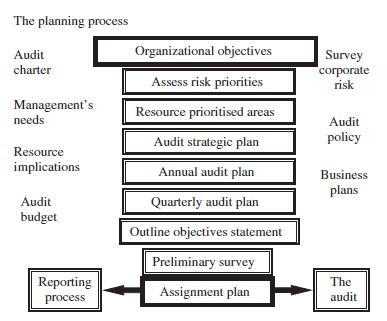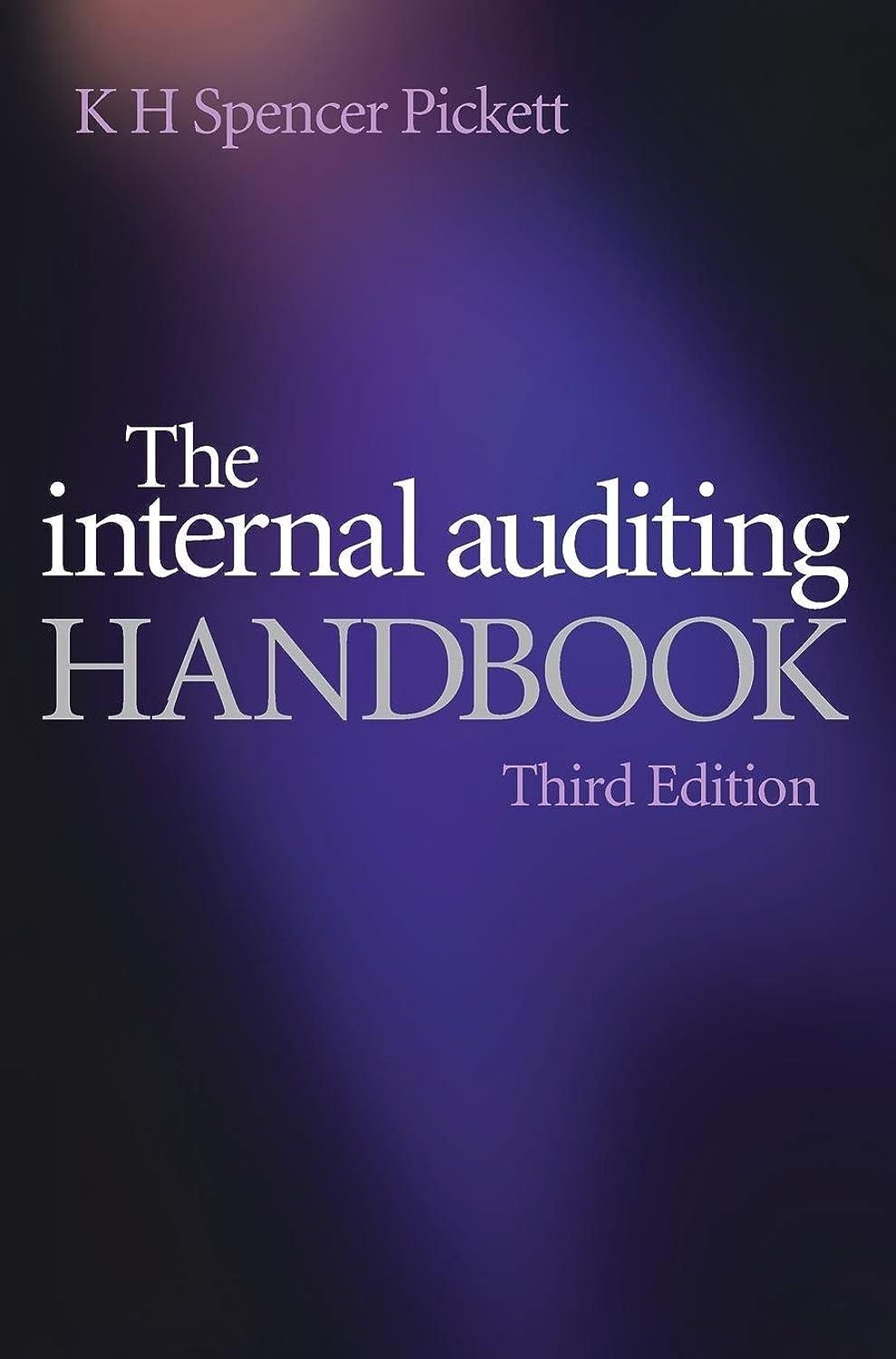Which statement is least appropriate? The main steps in the overall planning process are noted below: Some
Question:
Which statement is least appropriate?
The main steps in the overall planning process are noted below:

Some explanations follow:
a. Organizational objectives. The starting place for audit planning must be in the objectives of the organization. If these objectives are based on devolution of corporate services to business units, then the audit mission must also be so derived. Management must clarify goals and aspirations before plans can be formulated and this feedback can be achieved by active liaison and communication.
b. Assess risk priorities. The relative risks of each audit area must be identified, with reference to the corporate risk database.
c. Resource prioritized areas. Suitable resources for these areas must be provided.
d. Audit strategic plan. A plan to reconcile workload with existing resources should be developed. This should take on board the various constraints and opportunities that are influential now and in the future. The strategic plan takes us from where we are to where we wish to be over a defined time-frame, having due regard for the audit budget.
e. Annual audit plan. A formal audit plan for the year ahead is expected by most audit committees.
f. Quarterly audit plan. A quarterly plan can be derived from the annual plan. Most organizations experience constant change making the quarter a suitable time slot for supportive work programmes.
g. Outline objectives statement. Audit management can make a one line statement of expectations from an audit from work done so far by setting out the final terms of reference and scope for the audit in question.
h. Preliminary survey. Background research requires thought on key areas to be covered in an audit. This ranges from a quick look at previous files and a conversation with an operational manager to formal processes of many days of background work involving a full assessment of local business risks.
i. Assignment plan. We can now draft an assignment plan with formal terms of reference, including budgets, due dates and an audit programme.
j. The audit. Progress should be monitored with all matters in the terms of reference considered.
k. The reporting process. Planning feeds naturally into reporting so long as we have made proper reference to our plans throughout the course of the audit.
Step by Step Answer:






